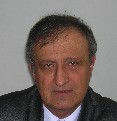 University Graduates and Labor Market. Coordinator's Message
University Graduates and Labor Market. Coordinator's Message
Dear reader,
”University Graduates and Labor Market” tracer study focused on providing some immediate answers and also on creating a national framework for generating long term answers to certain questions related to the way in which the Romanian universities correlate their educational offer to what we often call “the labor market”.
I must underline the fact that the differences between the ”labor market” and the so-called ”educational market” are major. Thus, while for the insertion on the labor market, the university bears the responsibility of providing them knowledge, competences and abilities that will allow them to get a job, set up their own business, continue their studies and permanently learn, the choice of the study programs mostly belongs to the students to be. There is a several year time gap between the moment when the future student has to make a choice, namely when we can talk about an ”educational market”, and the moment when, as a graduate, he/she enters the labor market. From this point of view, in order to compensate for some effects of this gap, the implementation of this project will support young high school graduates in making a choice that is based on information as complete as possible and will help universities to better evaluate the efficiency of the study programs offered, in order to improve their quality.
We are aware of the fact that “the labor market” that we all talk about is a concept quite vaguely defined; it can be nationwide, Europe-wide or even worldwide! At the same time, it is very dynamic and even unpredictable therefore universities need to consistently research their graduates’ professional career.
In this project we addressed 2009 and 2010 classes – young people who have recently found a job and others that continue their studies – and 2004 and 2005 classes – graduates who have a working experience that allows them to make a better evaluation of the link between the knowledge and the competences offered by the university studies they followed and those required at their jobs. This was achieved by conducting an online survey, an undertaking that was very much appreciated by graduates, given the large number of respondents.
I hope that this kind of projects will continue in Romania’s universities, giving other graduates the possibility to participate.
Project coordinator
Prof. univ. dr. ing.
Radu Mircea Damian